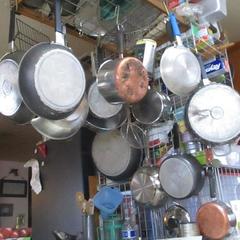-
Welcome to the eG Forums, a service of the eGullet Society for Culinary Arts & Letters. The Society is a 501(c)3 not-for-profit organization dedicated to the advancement of the culinary arts. These advertising-free forums are provided free of charge through donations from Society members. Anyone may read the forums, but to post you must create a free account.
HB Eggs Techniques
-
Similar Content
-
Burrito Techniques 1 2
By Smithy,
- 26 replies
- 2,541 views
-
- 950 replies
- 310,618 views
-
- 834 replies
- 201,525 views
-
- 103 replies
- 71,029 views
-
- 161 replies
- 38,005 views
-
-
Recently Browsing 0 members
- No registered users viewing this page.







Recommended Posts